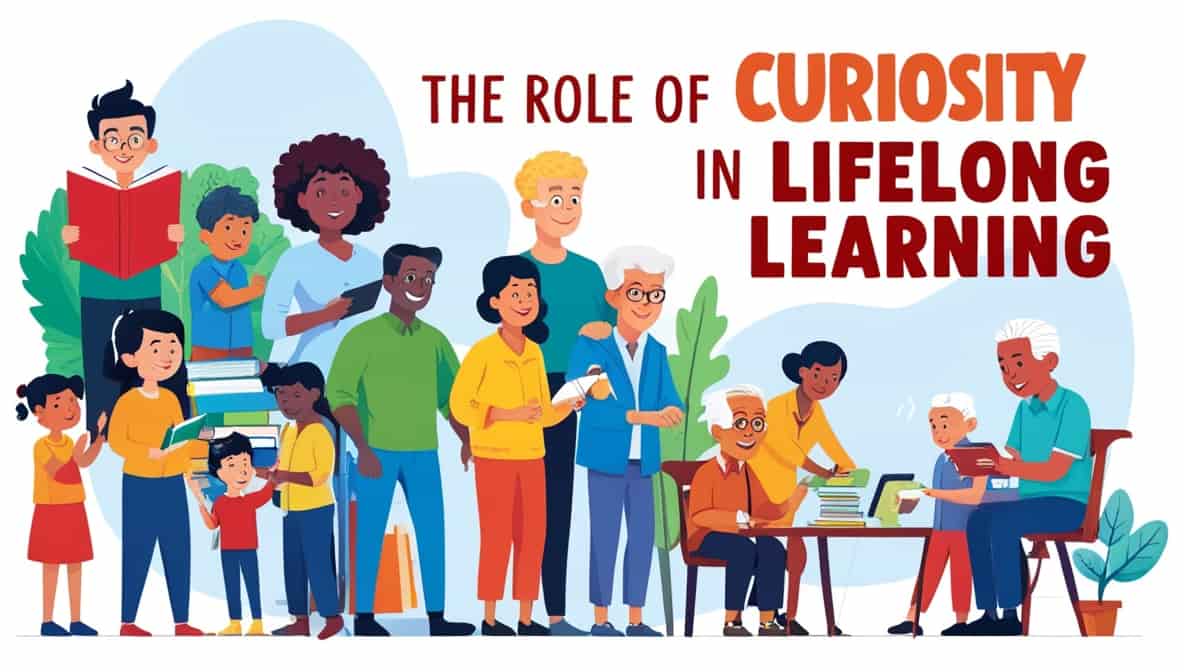Introduction
Curiosity is the heartbeat of lifelong learning. From childhood through old age, it drives us to explore, ask questions, and seek understanding. But curiosity isn’t just for children; it’s a powerful tool that enhances our personal growth, professional success, and overall well-being. In this article, we’ll uncover how curiosity shapes lifelong learning, its psychological benefits, and practical ways to stay curious at any stage of life.
How Curiosity Fuels Lifelong Learning
Curiosity makes learning enjoyable and effective. When we’re curious, our brain releases dopamine, a neurotransmitter associated with motivation and reward. This chemical boost helps us stay focused, retain information better, and feel satisfied when we solve problems or uncover answers.
For instance, have you ever been so intrigued by a topic that you lost track of time while reading or researching it? That’s curiosity in action—it pulls you into a state of deep focus, also known as flow, where learning feels effortless and enjoyable.
Also check: Why Do We Dream About People We Haven’t Seen in Years?
The Cognitive Benefits of Staying Curious
Curiosity doesn’t just make learning fun; it sharpens the brain. Research shows that curious people are better problem-solvers, critical thinkers, and decision-makers. This is because curiosity encourages us to seek out new information and connect it with what we already know, fostering creativity and innovation.
Moreover, staying curious can stave off cognitive decline. Activities like learning a new skill, exploring a hobby, or studying a foreign language help keep the brain active and healthy, reducing the risk of memory loss and age-related conditions.
The Psychological Benefits of Curiosity
In addition to cognitive advantages, curiosity enhances emotional well-being. Engaging in new experiences and ideas can reduce stress, alleviate boredom, and boost self-esteem. For example:
- Stress Reduction: Learning about something that interests you can be a great way to unwind.
- Increased Happiness: Achieving mastery in a new area, whether it’s cooking or coding, gives a sense of accomplishment and joy.
- Building Resilience: Curious people are more open to challenges and setbacks, viewing them as opportunities to grow rather than obstacles.
Practical Tips for Staying Curious
No matter your age, staying curious is possible with intentional effort. Here are some practical tips to cultivate curiosity:
- Ask “Why?” and “How?”: Let your questions guide you. Never settle for surface-level understanding.
- Read Regularly: Dive into books, articles, or blogs outside your usual interests to discover new ideas.
- Try Something New: Experiment with a hobby, sport, or skill you’ve never attempted before.
- Surround Yourself with Curious People: Engage with friends or groups who encourage exploration and creativity.
- Embrace Challenges: View obstacles as puzzles to solve, and let curiosity motivate you to find solutions.
Conclusion
Curiosity is more than a trait; it’s a mindset that keeps us learning, growing, and thriving. It fuels our desire to explore the unknown, sharpen our minds, and enrich our lives. By staying curious, you not only unlock endless opportunities for learning but also cultivate a life filled with wonder and joy. So, embrace curiosity—it’s never too late to let it guide your lifelong journey of discovery.









